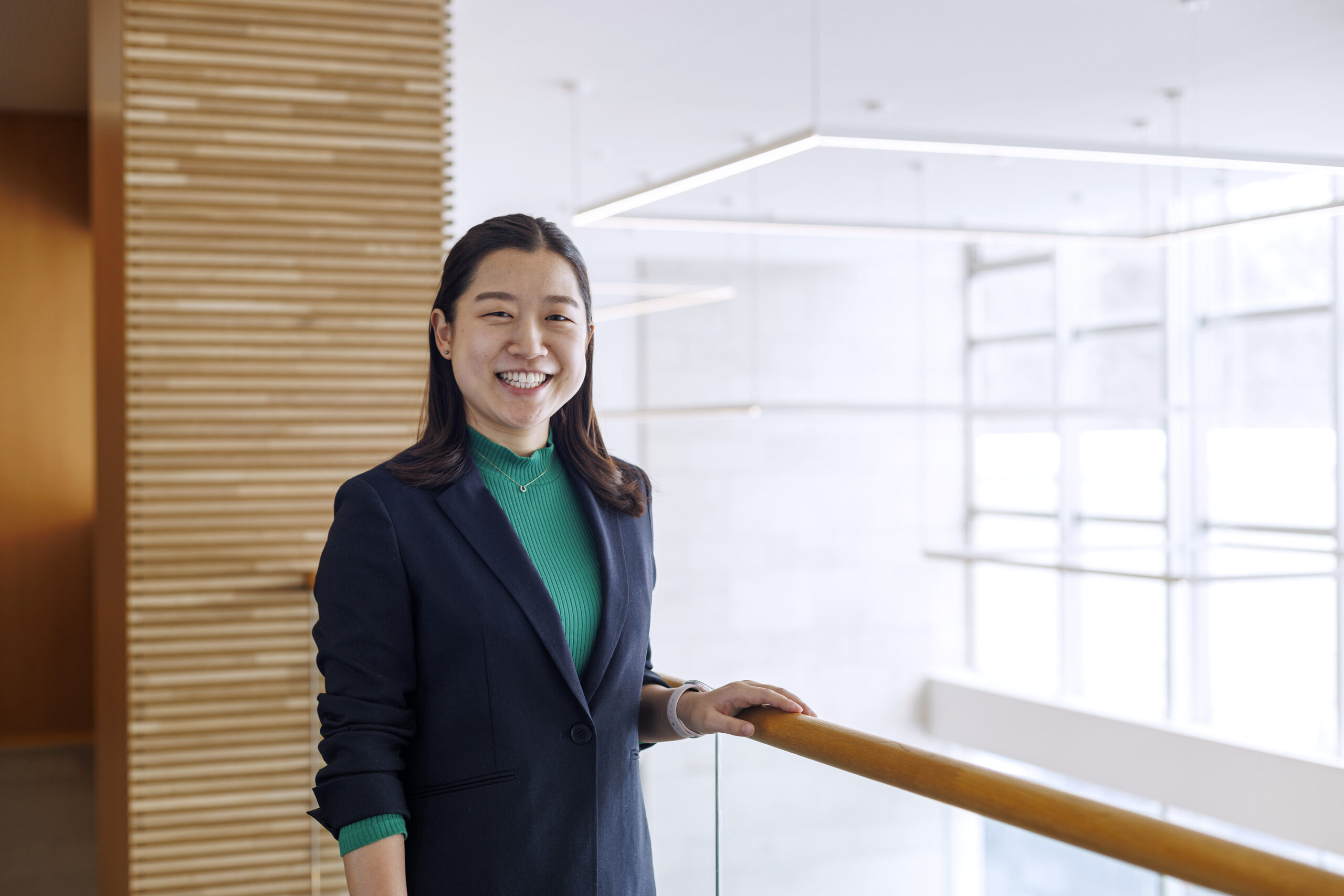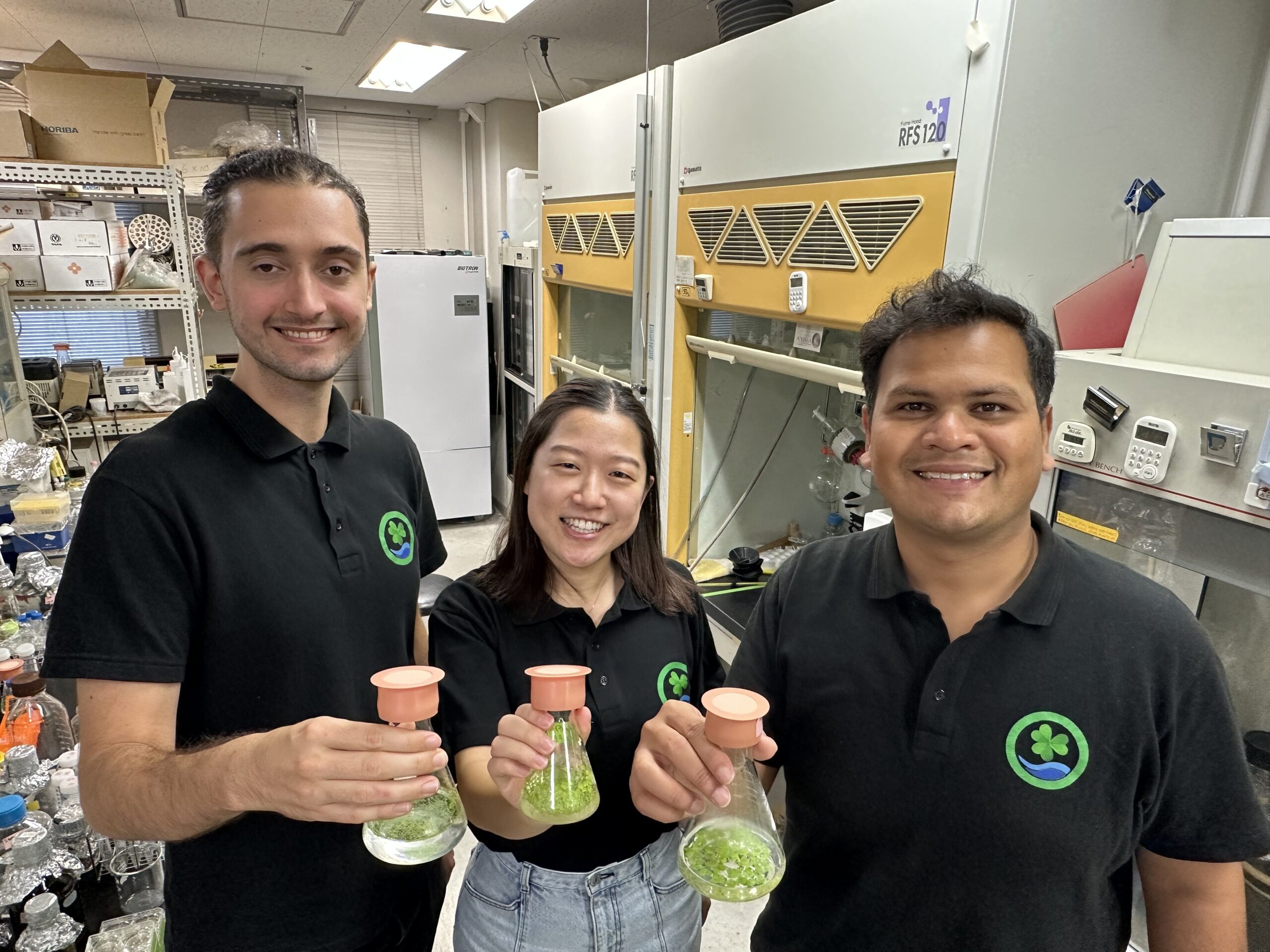Shaping the future of the earth with duckweed
University News | March 19, 2025
This article was published in the Spring 2024 issue of Litterae Populi. The full issue can be found here.
Moana Kitamura is a young pioneer tackling global warming. While still in her master’s at the Graduate School of Fisheries Sciences, she is leading a startup company, Floatmeal Co., Ltd., as its CEO. She is addressing challenges such as global food security and climate change by leveraging duckweed, an aquatic plant in the genus Wolffia, as a sustainable protein source. She shared insights into her life as a student at Hokkaido University, her involvement with Floatmeal, and her aspirations for the future.
-
Moana Kitamura
-
1st year, Master’s Course, Graduate School of Fisheries Sciences (at the time of interview)
Born in New Zealand in 1999. Enrolled in the School of Fisheries Sciences at Hokkaido University in 2019 and is currently a first-year master’s student in the Graduate School of Fisheries Sciences. In May 2023, co-founded Floatmeal Co., Ltd., a startup tackling global warming and food issues. The company was doubly honored at the 6th Batch Demo Day of Open Network Lab Hokkaido, also known as Onlab Hokkaido, receiving the Best Team Award and the Audience Award.
Can you tell us why you chose the School of Fisheries Sciences at Hokkaido University?
I was born in New Zealand, and lived in Australia from my second year of elementary school until I returned to Japan in my second year of junior high school. My decision to pursue a degree in the School of Fisheries Sciences stemmed from my love of the sea and water, as well as my experience in Australia. When my family visited the Great Barrier Reef, a local college student shared their marine research with us, which sparked my interest in ocean studies. This experience guided my decision to enter a fisheriesoriented school for my career path. I was drawn to Hokkaido University because Hokkaido’s natural beauty is reminiscent of Australia’s, and because of the appealing prospect of learning aboard the training ships at the School of Fisheries Sciences.
What did you focus on after enrollment?
First and foremost, my efforts were dedicated to Nitobe College, where I encountered truly meaningful programs. Among these, the Career Development Seminar stands out as particularly impactful. It was in this seminar that I declared my goal to seize every opportunity to challenge myself as much as time would allow, a declaration that propelled me into further ventures. During my sophomore and junior years, I participated as a tutor in a seminar regarding global warming. In my junior year, in particular, the rigorous preparation to participate in the Hakodate International Science Festival, which involved staying up all night every Sunday, served as a significant training experience for me. In my senior year, I took on the role of a tutor in a seminar dedicated to startups.
Why did you decide to get involved with Floatmeal?
My journey with Floatmeal began when I volunteered at an oncampus program for an international business contest called “Hult Prize”. A team focusing on Wolffia, a genus of duckweed, won the competition, laying the groundwork for what would become today’s Floatmeal. Later, a casual conversation with one of the team members revealed their need for a Japanese-speaking supporter. Having been exposed to global warming issues at Nitobe College, I became interested in the team and decided to join—initially with a casual mindset. As I got more involved, I found myself drawn to the allure of being able to present solutions to global issues through my actions.
What is the appeal of starting a business as a student?
Initially, I had no intention of founding a company. However, as our activities progressed, needs emerged to negotiate on an equal footing with university faculty and business professionals regarding intellectual property and product offerings, as well as to demonstrate our commitment to investors. To meet these needs, starting a business was the most appropriate choice. What stands out about founding a company as a student is the abundance of people willing to cooperate. We have received support from various individuals, including tax accountants and companies that provide us with free access to their facilities. Given the rarity of student entrepreneurs, we receive attention and various kinds of support, which I believe is a unique benefit of student entrepreneurship.
Could you please share your goals for the future?
My goal is to confront the negative challenge of global warming with positive solutions. I hope to inspire others to also feel motivated to solve this issue. Moreover, as we navigate this challenge, I aim to remain in a position where I can make impactful decisions and feel excited about contributing to the solution of global warming.
Finally, do you have a message for current Hokkaido University students?
If something piques your interest, I encourage you to dive in wholeheartedly, as far as your abilities allow. Engaging in various experiences can lead you to discover what suits you best. Equally important is knowing when to step back. Personally, by decisively walking away from what I felt didn’t suit me, I was able to focus on what I truly wanted to do. The choices we make shape us. So, I urge you to start with an open mind and to value what captures your curiosity.
This article was published in the Spring 2024 issue of Litterae Populi. The full issue can be found here.


